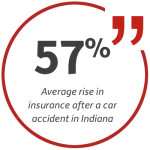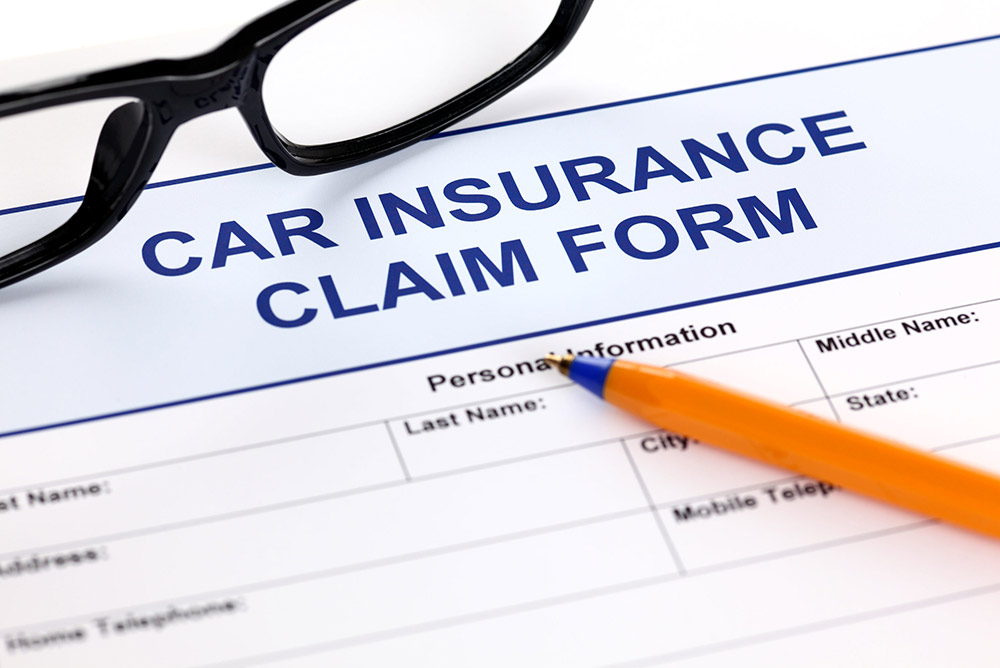Indiana is 15th in the nation for uninsured drivers. More than 300,000 of your Hoosier neighbors are hitting the roads without insurance coverage for car accidents. Meanwhile, Indiana is seeing a rise in severe and fatal crashes. There was a sharp 14% increase in 2020 during the COVID-19 pandemic plus a long, continued upward trend since then. Indiana has more than 200,000 car accidents each year with moderate to severe injuries. So, how much does insurance go up after an accident?
Is Accident Insurance Worth It?
If you’re wondering whether auto insurance is worth the cost, keep in mind that it could save you from financial distress after an unexpected car accident. Insurance can help you get your car repaired, replace the car completely if it’s totaled, cover your medical bills, or even take care of the cost of a rental car while you’re dealing with the fallout from the crash.
Accident Insurance coverage also helps cover someone else’s costs if you’re at fault for what happened to them in the accident. Your auto insurance company handles this cost to prevent you from owing the full value at a difficult time in your life.
In a car accident with no insurance, you’ll be left to pay the full expenses on your own. The other person might sue you individually to recover their costs, which could leave you on the hook for a huge debt with no help from insurance.
Driving without insurance is also illegal, so the state of Indiana may opt to take action against you. A first offense can bring a license suspension for at least 90 days with a $250 fee to get your license back. You’ll be required to provide an SR22 certificate as proof of future financial responsibility. Additional offenses of driving without a license come with harsher penalties.
Whether or not you have insurance at the time of the accident, you can be held civilly liable for your level of responsibility for what happened. Car accidents are evaluated according to the elements of negligence in personal injury cases plus Indiana’s 51% fault rule, also known as the modified comparative fault rule.
Under Indiana law, you can collect car accident compensation in a personal injury case only if you can establish your damages and show you were less than 51% at fault for the crash. Otherwise, you may owe money rather than being able to collect money from your accident. Any award you receive will be reduced by the amount of your fault.
How Much Does Insurance Go Up After an Accident?
You may be concerned about a car insurance increase, so consider details like whether you were at fault for what happened and how your driving history looks. When an insurance company determines that their insured customer caused or contributed to one or more accidents, they usually raise the person’s rates significantly to compensate for the company’s losses.

The insurance rate tracker ValuePenguin has found that the average rise in insurance costs after a car accident is about 49% nationwide and 57% in Indiana. Certain factors impact this cost, like what happened in the accident, whether you’ve had other accidents before, and which auto insurance company you use.
Some auto insurance companies won’t raise your rates at all for an accident where you’re not at fault or only contributed to the accident in a small way. Other companies will raise your rates slightly or significantly. Ask questions about potential rate increases long before you’re ever in a crash, while you’re choosing a provider for accident insurance coverage.
Concerned About Insurance After an Accident? Ask Crossen Law Firm
When you’re worried about your legal situation and insurance coverage that may apply to your car accident, talk to an Indiana car accident lawyer about your options. Connect with Crossen Law Firm as soon as possible and we’ll help you understand your situation.
Contact us at 317-401-8626 for a free consultation. We have extensive experience with Indiana car accidents, including accidents with and without auto insurance. Our priority is always to help you secure the compensation you deserve and support you in your recovery.

 317-401-8626
317-401-8626 
.jpg)